Let’s not mince words—January 20th, 2025, will be remembered as the day fairness and inclusion in the U.S. federal government took a devastating hit
President Trump’s new executive order claims to “end wasteful DEI programs,” but what it’s really doing is dismantling the scaffolding that helps ensure equity for millions of Americans. Veterans, people with disabilities, women, Indigenous communities, religious minorities, neurodiverse individuals—this isn’t about cutting “waste.” It’s about cutting support for those who have fought for their country, who are breaking barriers, and who, frankly, deserve better.
This isn’t just a blow to federal workers; it’s a wrecking ball aimed at anyone doing business with the government. Contractors—U.S.-based and global—are now being told to gut their own DEI efforts if they want to keep their contracts. Think about that. At a time when the private sector is stepping up, the federal government is saying, “Actually, inclusion doesn’t matter anymore.”
This isn’t just bad policy—it’s reckless. Removing DEI programs isn’t just about fairness; it’s about the loss of innovation, talent, and trust. DEI isn’t some buzzword—it’s a proven driver of better decisions, better outcomes, and yes, better business.
And let’s talk about the ripple effect. What happens when federal contractors cut their programs? When unions can no longer negotiate workplace equity provisions? When businesses feel the pressure to abandon their values for the sake of compliance?
This order doesn’t just roll back progress; it sets us on a path where exclusion becomes the norm, not the exception. And if history has taught us anything, it’s that exclusion comes with a cost—a cost paid not just in dollars, but in dignity, innovation, and unity.
We’re at a crossroads. The world is watching how the U.S. handles inclusion and equity. This order sends the wrong message—not just to Americans, but to the global community.
It’s time to ask ourselves: What kind of country do we want to be? One that embraces diversity and inclusion as strengths—or one that turns its back on progress and fairness?
I’ll be watching this unfold closely, and I urge you to do the same. This isn’t just about policy—it’s about who we are and what we stand for.
Dr. Liz Wilson is a globally recognized and awarded expert in diversity, equity, and inclusion and the author of The Strategic Inclusion Playbook: Your Comprehensive Guide to Creating an Inclusive Organization. She has been a trusted advisor to organizations worldwide, offering evidence-based strategies to address inclusion challenges while navigating complex regulatory environments.
Dr. Wilson is also the founder of Include Inc., a consultancy specializing in innovative approaches to achieving inclusive outcomes. Her academic research and published 8-Inclusion Needs of All People framework has been adopted across the world, navigating legal, cultural, and social norms to address the intersectional needs of all people in efforts to eliminate discrimination. Wilson, L. A. (2023).
Dr. Liz also shares her research and strategic inclusion capability through the Include Institute.
The 8-Inclusion Needs of All People: A Proposed Framework to Address Intersectionality in Efforts to Prevent Discrimination. International Journal of Social Science Research and Review, 6(2), 296-314.






